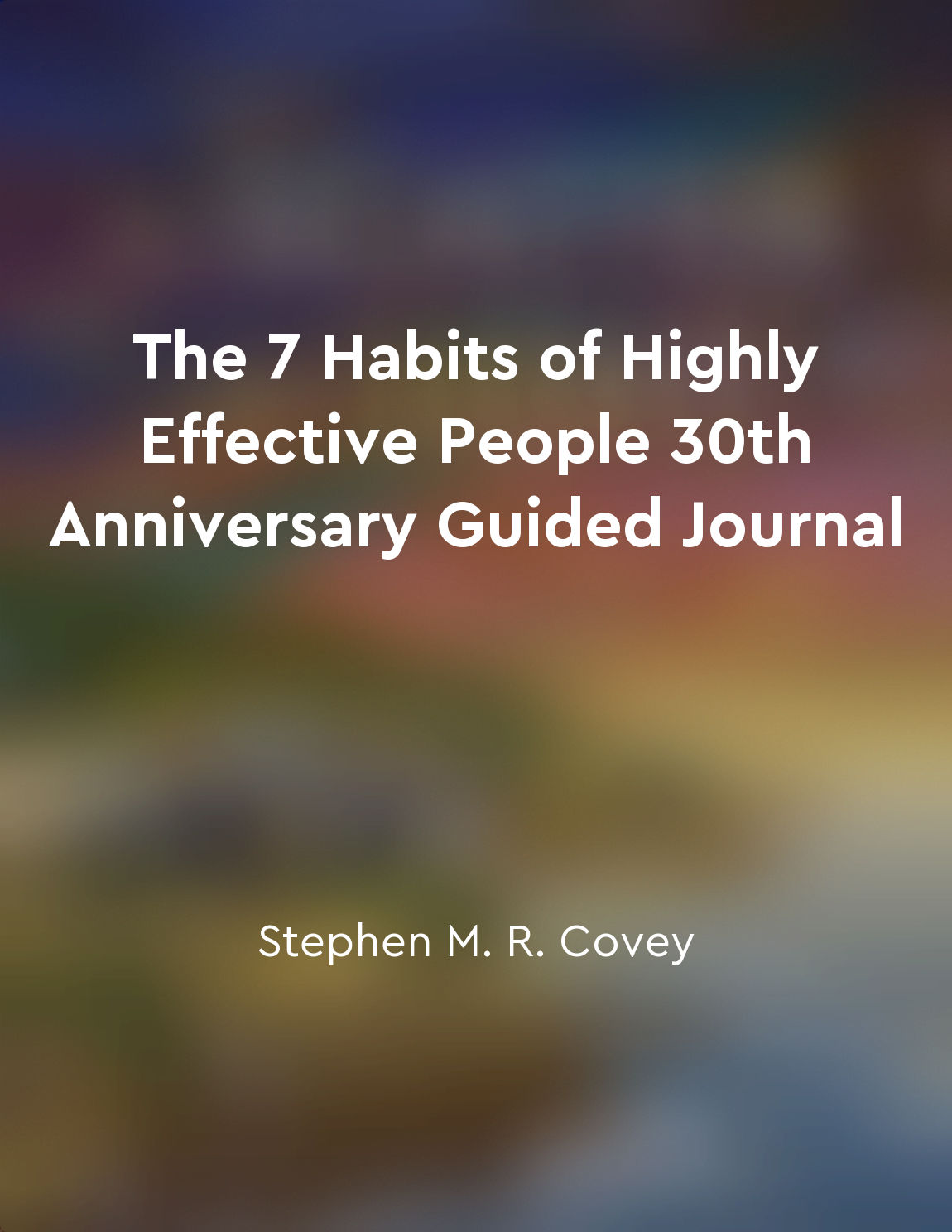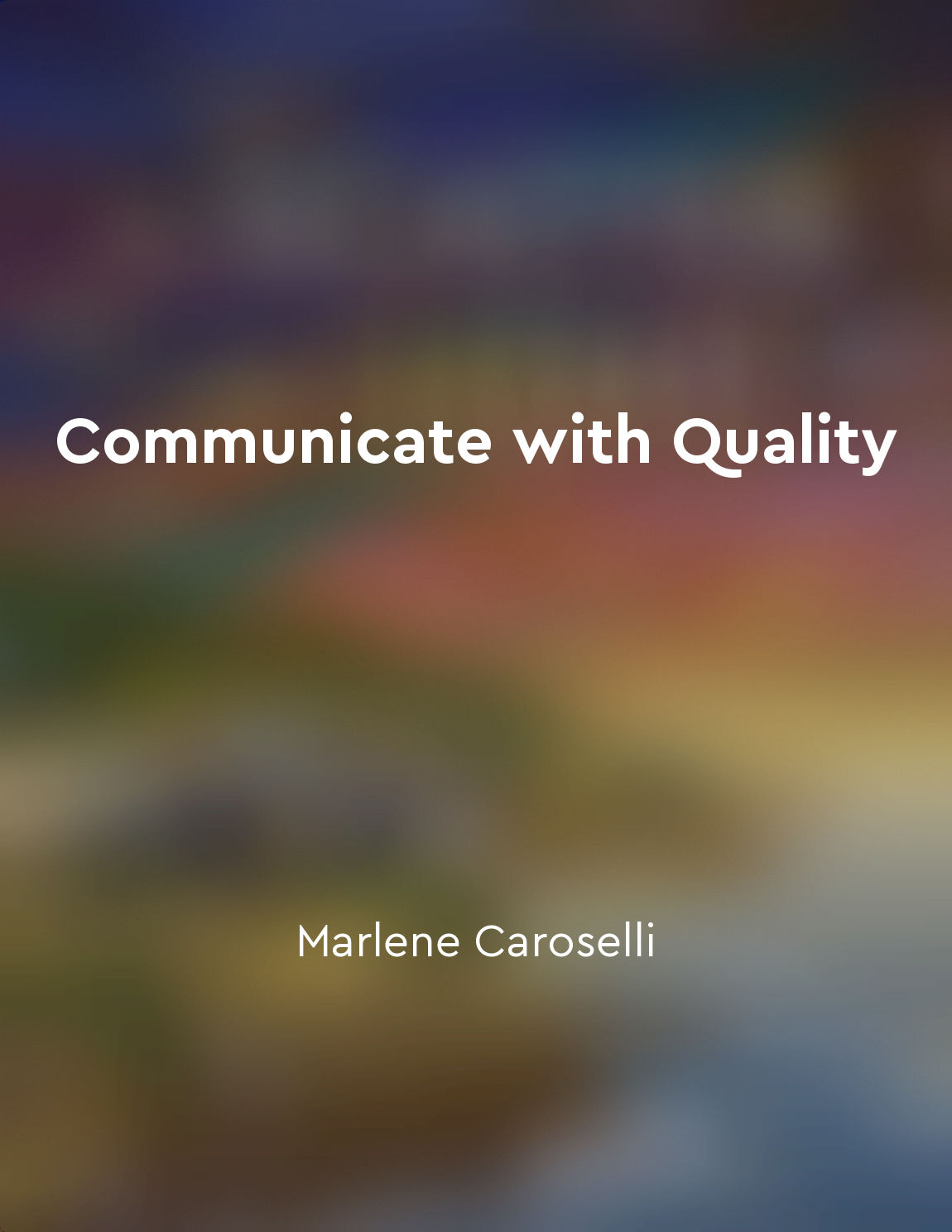Listening requires setting aside our own agendas from "summary" of The Lost Art of Listening, Third Edition by Michael P. Nichols,Martha B. Straus
When we engage in conversation with others, we often come into it with our own preconceived ideas, beliefs, and opinions. These internal agendas can cloud our ability to truly listen to what the other person is saying. Instead of being fully present and attentive, we may find ourselves waiting for our turn to speak or formulating our response in our minds. This can prevent us from fully understanding the speaker's perspective and can lead to misunderstandings and miscommunication. Setting aside our own agendas means putting aside our own needs, desires, and biases in order to focus on the speaker and their message. It requires us to be open-minded, curious, and empathetic, allowing the speaker to express themselves fully without judgment or interruption. By doing so, we can create a safe and supportive environment for the speaker to share their thoughts and feelings openly and honestly. When we set aside our own agendas, we demonstrate respect and validation for the speaker. We show that we value their perspective and are willing to listen with an open heart and mind. This can help to strengthen our relationships with others and foster trust and connection. In contrast, when we allow our own agendas to dominate the conversation, we risk alienating the speaker and shutting down open communication.- We can become more effective and empathetic listeners. We can gain a deeper understanding of others and build stronger connections with those around us. This requires mindfulness, self-awareness, and a willingness to let go of our own ego in order to truly connect with others on a meaningful level. Ultimately, setting aside our own agendas can lead to more authentic and fulfilling relationships based on mutual respect, understanding, and empathy.
Similar Posts
Never lose sight of the difference you can make
The concept of never losing sight of the difference you can make is a powerful reminder of the impact each individual can have ...
Negotiate from a position of strength
Negotiating from a position of strength means having an advantage over the other party in a negotiation. This advantage can com...

Reflect on your progress
Reflecting on your progress is a crucial aspect of personal growth and development. It allows you to assess how far you have co...

Focus on the present moment
When you arise in the morning, think of what a precious privilege it is to be alive – to breathe, to think, to enjoy, to love. ...
Bridging the gap between unspoken thoughts and verbal expressions
Wish I Could Tell You delves deep into the intricate world of human emotions, exploring the complex relationship between unspok...
Create a shared understanding of the problem to find common ground
To effectively address crucial conversations, it is essential to establish a shared understanding of the problem at hand. This ...
Practice selfreflection to assess your communication effectiveness
To become a more effective communicator, it is essential to engage in self-reflection. Reflecting on your communication skills ...

Hand gestures can convey hidden meanings
Hand gestures can be incredibly revealing when it comes to understanding the true thoughts and feelings of a person. While verb...

Always consider your audience when communicating
When you communicate, it is crucial to keep your audience in mind at all times. Your message should be tailored to the needs an...

Communication styles vary across cultures
One of the key principles of intercultural communication is the recognition that communication styles can differ significantly ...

